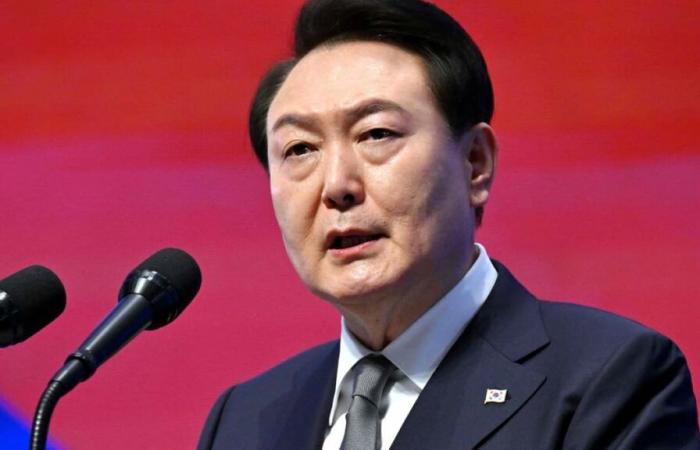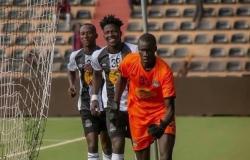Under arrest warrant, Yoon Suk Yeol risks becoming the first South Korean president to be arrested. From the risks of violence to the political consequences, here are the questions surrounding this new episode of the crisis following its failed attempt to impose martial law.
• Also read: Ousted South Korean president resists arrest
• Also read: Martial law: an arrest warrant issued against the ousted president of South Korea
Mr. Yoon triggered a serious political crisis on the night of December 3 to 4 by imposing martial law and sending the army to Parliament to try to muzzle him, an episode which recalled the dark hours of the military dictatorship.
He was forced to backtrack a few hours later when MPs managed to enter Parliament and pass a motion demanding the lifting of martial law.
He was dismissed by deputies on December 14, a procedure which must be validated or invalidated by the Constitutional Court. Suspended, but still formally head of state, he is under investigation for “rebellion,” a capital offense for which presidential immunity does not apply.
Arrest warrant
Faced with his refusal to answer investigators’ questions, a court issued an arrest warrant against the 64-year-old former prosecutor, valid until January 6.
Since then, Mr. Yoon has remained holed up in his residence and has shown no contrition. He even defied law enforcement by sending a message to his supporters deeming South Korea “in danger” and promising to “fight until the end.”
Professor of Korean studies at the University of Oslo, Vladimir Tikhonov sees these remarks as a sign of “despair” from the deposed leader.
“More than 60% of South Koreans want the impeachment to be validated by the Constitutional Court and this figure includes many moderate conservatives,” he explains to AFP, noting that Mr. Yoon is now relying on the extreme right to defend it, at the risk of violence.
A risk of violence
The essential question that arises is the attitude that the presidential guard will adopt, which in recent weeks has opposed search attempts by investigators.
They warned that anyone who tried to prevent Mr. Yoon’s arrest could themselves be subject to prosecution.
Such an attitude would fall under the offense of “obstruction,” confirms Kim Hae-won, professor of constitutional law at the South Korean University of Law in Busan.
“The risk of violence is troubling,” says Chae Jin-won, a researcher at the Humanitas College of Kyung Hee University, estimating that the authorities could take this factor into account even more as South Korea is in national mourning in following the crash in Muan (south-west) which left 179 dead on Sunday, the deadliest air disaster ever to occur on its soil.
Supporters of the ousted president, including far-right influencers, gathered around his residence, with some scuffles noted with anti-Yoon protesters.
The opposition asked its MPs to stay in Parliament premises to monitor developments.
Manifestations
By relying on small far-right groups for support and denouncing the procedures targeting him as “activities of anti-state elements”, Mr. Yoon risks having aggravated his case, believes the political commentator Park Sang-byung, who considers an arrest “inevitable”.
“He made it clear he had no regrets. The situation is not only worrying but dangerous,” he noted, interviewed by AFP.
According to South Korean media, investigators from the Senior Corruption Investigation Office (CIO) want to question the deposed president at their premises in Gwacheon, near Seoul.
They can keep him in custody for 48 hours, with a new warrant being necessary to keep him in custody beyond that.
At the same time, Mr. Yoon remains subject to the impeachment procedure currently being examined by the Constitutional Court, which has approximately six months to decide. If the judges validate it, elections will be called.
In this scenario, “the president will probably reaffirm his innocence,” says Chae Jin-won.
For the researcher, the unprecedented crisis which is hitting Asia’s fourth largest economy and is likely to continue is a blow to its “international credibility”.






